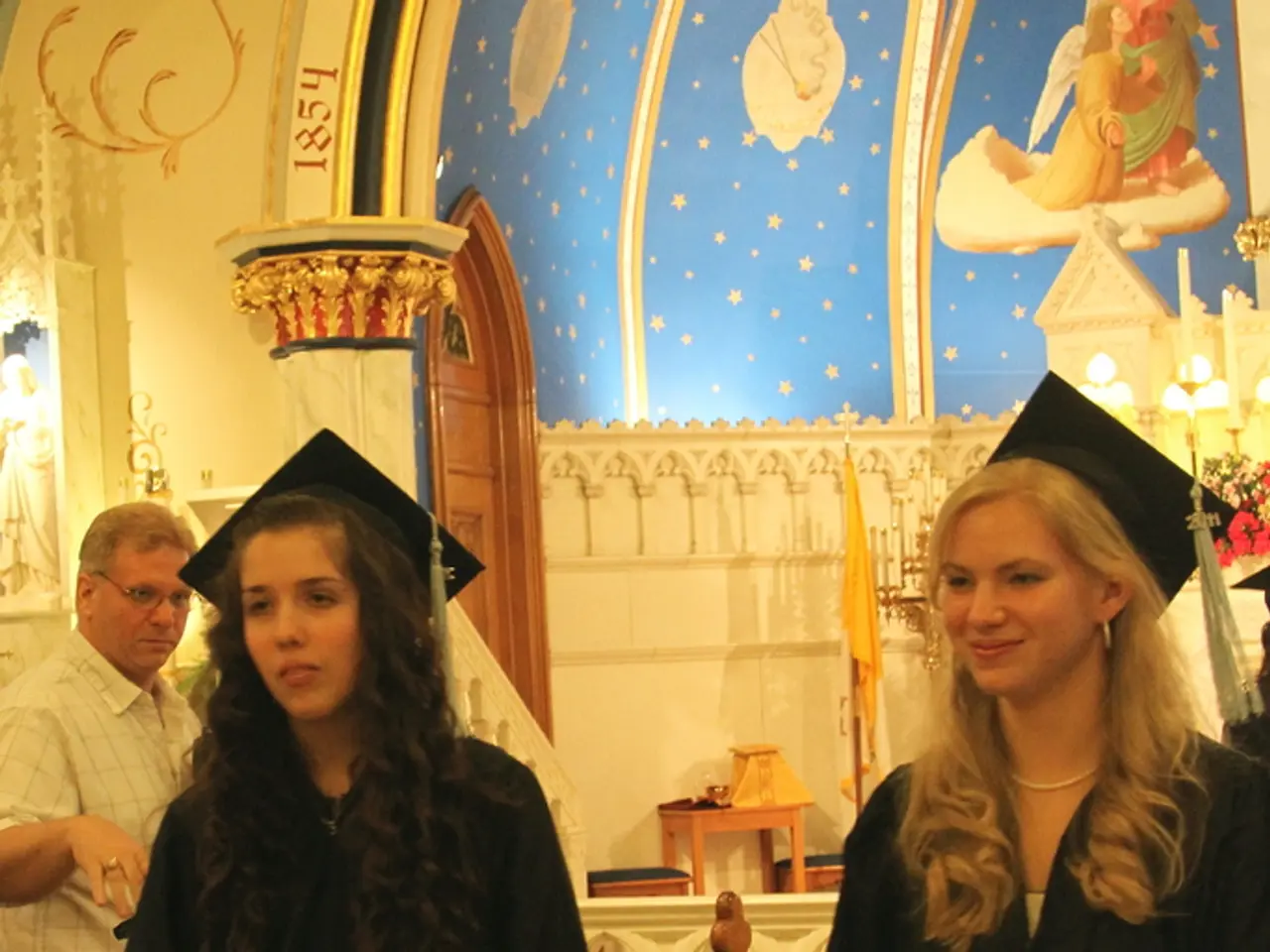Exploring the Blend of Past and Present: The Challenges Modern Families Face in Maintaining Tradition and Personal Autonomy?
In contemporary Kazakhstan, traditional practices coexist with modern aspirations, creating a unique blend of culture and personal autonomy. This dynamic is evident in various aspects of life, particularly in marriage and financial management.
Traditional marriage practices, such as the daughter-in-law's obligation to serve her husband's parents, wearing a headscarf at home, and living with parents after marriage, are still prevalent in Kazakh culture. However, these traditions also present challenges when pursuing personal and financial independence.
Adhering to traditional marriage practices offers several benefits. Financial and legal security, cultural and familial respect, and emotional companionship and stability are among the advantages. Marriage provides a stable legal framework, including tax benefits, inheritance rights, and healthcare advantages. Traditional marriage ceremonies often honor cultural heritage and elders, fostering family unity and social recognition. Lastly, traditional marriage can offer companionship and shared goals, supporting emotional well-being and family stability.
However, these traditional practices also present potential challenges. The shift towards financial independence, particularly among women, has led to tensions in marital dynamics. Partners may prioritize personal well-being and more readily end unsatisfying marriages, leading to decreased commitment to sacrifice and problem-solving within marriage. Balancing roles and expectations, managing career, personal growth, caregiving, and household responsibilities can create overwhelming stress, often challenging traditional marital roles and expectations, particularly for women.
Navigating this balance often involves redefining roles within marriage, such as adopting egalitarian practices where paid and unpaid work are shared, supporting healthier work–life balance and mutual independence. This approach may mitigate some challenges found when traditional norms meet modern personal and financial autonomy.
Financial control is a significant issue when parents financially support a newlywed couple, as it can lead to control under the pretext of joint budgeting. Just over half of the respondents accept these traditions and regard them as an essential prerequisite for the prosperity of a family, while another half question their relevance in modern times.
Living with parents after marriage is a common expectation in Kazakhstan, but it can lead to pressure on the younger generation. A recent study by the Kazakhstan Institute of Public Development (KIPD) reveals that parents play a significant role in many important marriage decisions in Kazakhstan. However, a lack of personal life, less responsibility for raising children, and a shift of family responsibilities to parents are among the disadvantages of living with parents, according to KIPD survey respondents.
Excessive borrowing is a challenge for many Kazakh families, with about one-third of respondents in various types of marital unions facing difficulties due to debt. Akhat, a character from the Kazakh writer Sherkhan Murtaza's "Flaming Arrow," is portrayed as a wise and respected elder in his village who lives independently in his own house at an old age.
In conclusion, while traditional marriage offers important social, legal, and cultural benefits, pursuing personal and financial independence requires addressing evolving marital dynamics, managing role expectations, and sometimes confronting societal pressures to integrate both successfully. Traditions, when preserved in their true essence, serve as a profound source of spiritual nourishment, wisdom, guidance, and a sense of continuity. However, when they become rigid, they risk becoming empty symbols and can act as barriers to personal development, self-expression, and financial independence.
Engaging in cultural travel allows individuals to learn more about the family dynamics and relationships surrounding traditional marriage practices in Kazakhstan, providing a deeper understanding of the intricate balance between modern aspirations and traditional norms.
The blending of lifestyles, such as balancing traditional roles with contemporary notions of personal and financial autonomy, offers insightful exploration for those interested in the intersection of culture, travel, and family-dynamics.




